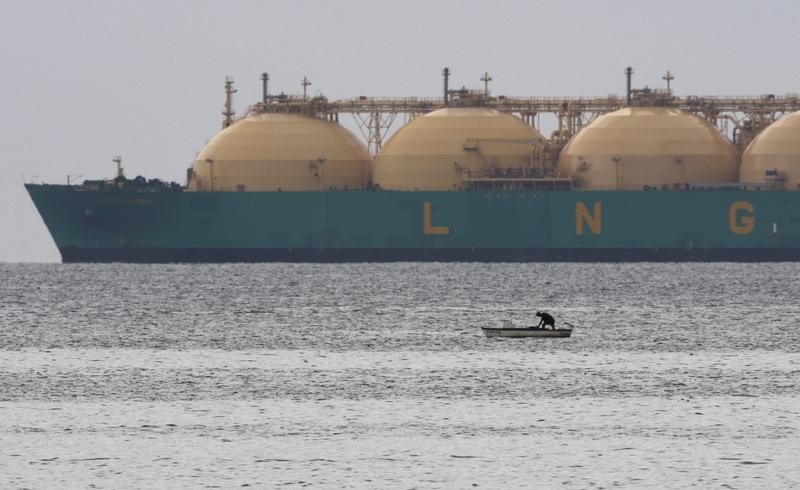SYDNEY, June 21 (Reuters) - Australian exports of liquefied natural gas are likely to grow strongly over the new few years despite subdued prices for the energy given the massive amount of money already sunk into projects, a top central bank official said on Tuesday.
The Reserve Bank of Australia's (RBA) head of economic analysis, Alexandra Heath, also emphasised that more needed to be done to develop the country's sources of renewable energy both for exports and their environmental benefits.
Speaking at a conference on energy projects, Heath noted that producers had already invested more than A$230 billion ($172 billion) in new LNG output in Australia, much of which was yet to fully come on line.
While further spending would be constrained by soft prices, the investment completed and under way would see Australia become the largest producer of LNG in the world within the next year or two. Australia is now the world's second-largest producer after Qatar, and is projected to take the number one spot by 2019, according to government data.
"The decline in (LNG) prices is unlikely to lead to a significant reduction in production from existing producers because the high fixed costs of building the infrastructure have been paid and marginal production costs are relatively low," said Heath.
Rising volumes of resource exports have been a crucial prop for the Australian economy, which outpaced much of the developed world with growth of 3.1 percent in the year to March.
Heath was not so optimistic about exports of thermal coal, with a significant amount of Australia's output estimated to be unprofitable around current prices.
In contrast, Australia had abundant sources of renewable energy that needed to be developed.
"Our ability to benefit from rising demand for cleaner fuels will depend on our willingness to invest and innovate," said Heath.
"It is important that Australian companies remain at the forefront of developing expertise in these fields, not just for the environmental benefits that they will bring, but to be able to export these technologies to other countries."
